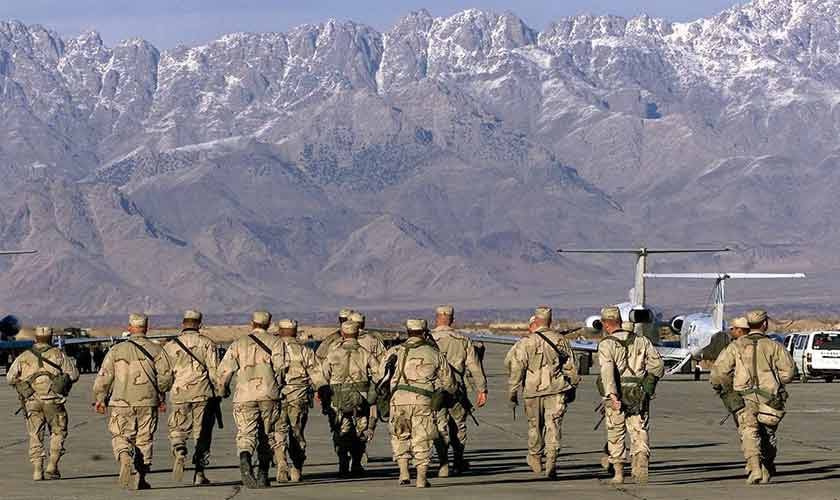**The Controversy Over Bagram Airbase: A Geopolitical Flashpoint**
The future of Bagram Airbase in Afghanistan remains a contentious issue. If Afghanistan does not return Bagram—the largest U.S. military site in the country—to the United States, the consequences could be dire, warned former U.S. President Donald Trump.
Bagram has been described as the “original sin” of the U.S. evacuation in the report *Left Behind*, issued by the U.S. Senate Committee on Foreign Relations (minority report) in February 2022. Recently, during his state visit to the UK, President Trump reiterated his intention to reclaim Bagram Airbase. However, this was not the first time he addressed the matter.
When the U.S. withdrew from Afghanistan in 2021, many Republicans criticized the Biden administration for not maintaining control over Bagram. Holding onto the base was considered a key point of contention. From this perspective, Trump’s focus on Bagram aligns with addressing the grievances of his supporters concerning the previous administration’s handling of the withdrawal.
Dr. Paul Poast, Deputy Dean of Doctoral Education at the University of Chicago’s Social Science Division, explains, “Trump has said that the U.S. gave the Taliban Bagram for nothing.” It is important to recall that the decision to withdraw originated from an agreement signed in 2020 during Trump’s first term. The withdrawal was ultimately completed under President Joe Biden in 2021.
In testimony before the House Armed Services Committee, Secretary of Defense Lloyd Austin defended the decision to vacate Bagram. He argued that maintaining the airbase would have required placing approximately 5,000 U.S. troops in harm’s way just to operate and defend the facility.
In March, Trump highlighted that his interest in retaining Bagram wasn’t merely about Afghanistan, but about countering China. Speaking at a press conference during his UK visit alongside British Premier Keir Starmer, Trump emphasized, “It’s an hour away from where China makes its nuclear weapons.” He was likely referring to China’s Lop Nur nuclear testing site located in the desert of the Xinjiang Uyghur Autonomous Region.
However, it is critical to remember that under the Doha Agreement, the United States pledged not to use or threaten force against Afghanistan’s territorial integrity or political independence, nor interfere in its internal affairs.
Dr. Poast points out that retaining Bagram could indeed be strategically valuable for the U.S., enhancing its ability to conduct operations near China—as Trump suggested—as well as near Iran. This supports the idea that Trump may have recognized the importance of maintaining a global U.S. military presence.
A July investigation by BBC Verify analyzed 30 satellite images of the Lop Nur site spanning from late 2020 through 2025. The investigation found minimal activity at the nuclear testing base since the Taliban’s return to power and uncovered no evidence of any Chinese presence linked to U.S. concerns.
Meanwhile, Zabihullah Mujahid, the Taliban’s chief spokesman, has urged Washington to embrace “realism and rationality” rather than repeating past mistakes. He reiterated that Afghanistan’s independence and territorial integrity remain paramount for the Islamic Emirate and have been consistently emphasized in all bilateral negotiations.
Mujahid stressed the importance of the United States honoring its commitments under the Doha Agreement. Rather than revisiting failed past approaches, he advocates for adopting a policy grounded in realism and rationality.
The issue holds serious implications for the broader region. Neighboring countries must consider the potential fallout should the U.S. reestablish a presence at Bagram. Pakistan, in particular, faces a delicate balancing act given its growing ties with both the U.S. and China.
Adding complexity is Pakistan’s new Strategic Mutual Defence Agreement with Saudi Arabia, which treats an attack on either country as an attack on both. With other Arab nations potentially entering similar defence pacts, the global community is watching closely.
The return of American forces to Bagram could push Pakistan into a precarious geopolitical tightrope, underscoring the intricate dynamics of regional security and international relations in South Asia and beyond.
https://www.thenews.com.pk/tns/detail/1346842-bagram-back-in-play


